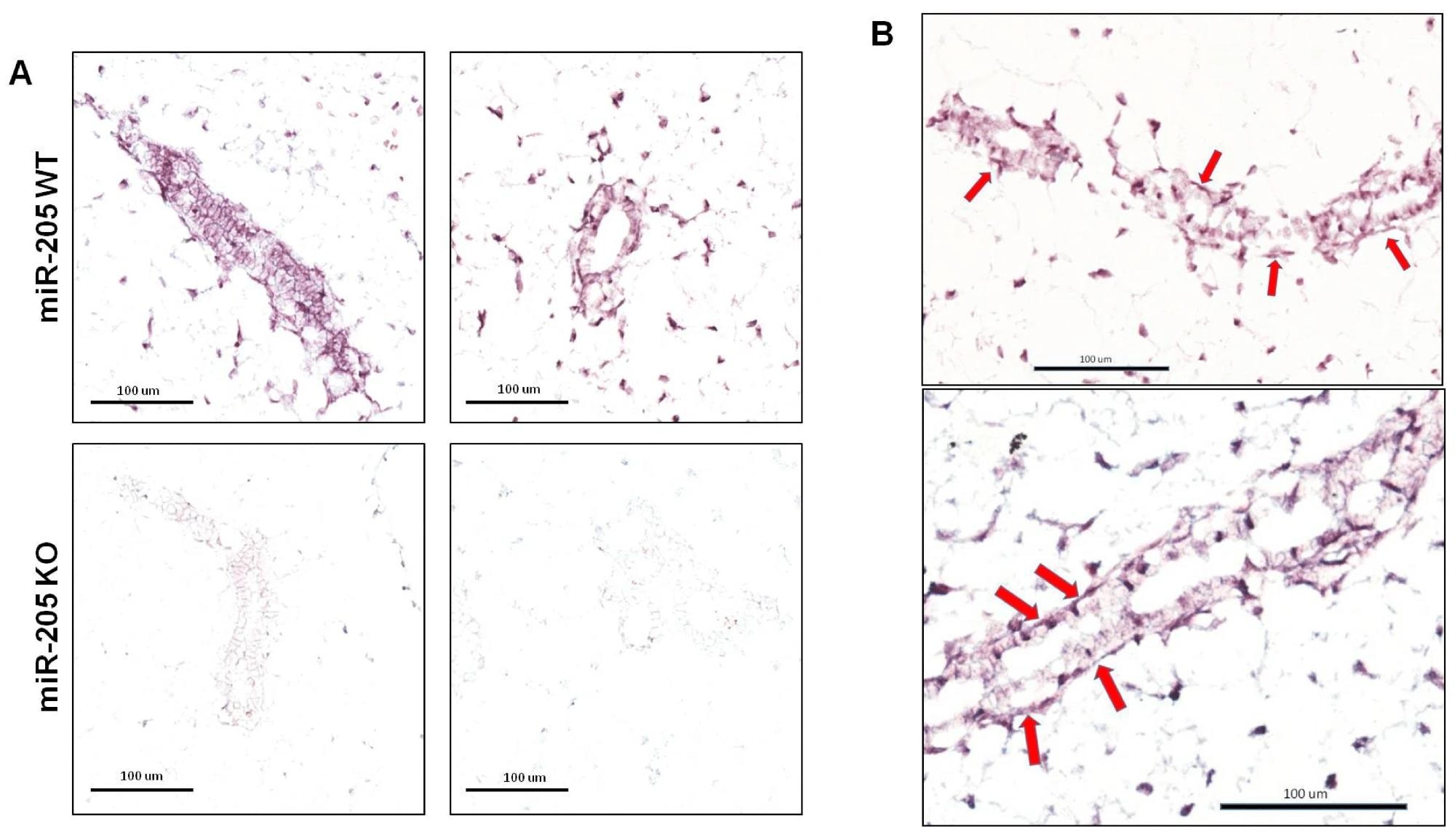MicroRNAs are small, highly conserved, non-coding RNA molecules that play a crucial role in regulating gene expression. These regulatory genes are associated with various physiological and pathological processes in mammals.
Genetic loss of miRNA-205 has been found to be associated with neonatal lethality (ten days after birth) in mice due to an altered PI3K signaling pathway in the epidermis, which is essential for the stem cell self-renewal process. This microRNA plays an onco-suppressive role by targeting human epidermal growth factor receptor 3 (HER3).
MicroRNA-205 has also been found to be associated with mammary gland development. It is highly expressed in the basal epithelium but not the luminal compartment. Its expression increases in both basal and luminal epithelium during pregnancy and lactation. The involvement of microRNA-205 in mammary gland stem cell regeneration has also been evidenced.
In this study, scientists have investigated the physiological and developmental role of microRNA-205 in mice.
 miR-205 expression and localization. In situ hybridization of miR-205 in mammary glands confirmed the loss of expression in KO mice versus WT (A); in addition, a more detailed evaluation revealed preferential localization of this miRNA in the mioepithelial cells ((B), red arrows). Images are representative. Study: Genetic Loss of miR-205 Causes Increased Mammary Gland Development.
miR-205 expression and localization. In situ hybridization of miR-205 in mammary glands confirmed the loss of expression in KO mice versus WT (A); in addition, a more detailed evaluation revealed preferential localization of this miRNA in the mioepithelial cells ((B), red arrows). Images are representative. Study: Genetic Loss of miR-205 Causes Increased Mammary Gland Development.
Generation of mouse model
The scientists generated a conditional microRNA-205 knockout mouse model using the well-described Cre-loxP technology. Using in situ hybridization technique, they confirmed the loss of microRNA-205 expression in the mammary gland of knockout mice. They further confirmed the knockout using Northern Blot and qRT-PCR methods.
Important observations
The scientists found that microRNA-205 knockout is not associated with any lethal consequences, which is in contrast to a previous study that showed neonatal lethality in mice due to loss of microRNA-205 expression. As suggested by the scientists, there might be mouse strain-specific modifiers that alter the functional consequences of microRNA-205 deletion.
Given the potential involvement of microRNA-205 in the self-renewal of mammary gland stem cells, the scientists hypothesized that genetic loss of this microRNA may affect mammary gland development and function.
They tested their hypothesis by analyzing microRNA-205 knockout mammary glands at different stages of development and found no significant structural and developmental defects. They found that microRNA-205 knockout female mice were perfectly able to feed their pups.
By analyzing microRNA-205 knockout mammary glands collected at different ages, they observed significantly increased outgrowth and branching at six weeks (during puberty) and five months (mature virgin) of age (p = 0.00016 at 6 weeks, p = 0.0025 at 5.5 months).
They also observed that at six months of age, terminal end buds in microRNA-205 knockout mammary glands are more prominent and distributed in the central part of the gland. They rarely observed normal ducts in microRNA-205 knockout mammary glands.
Similarly, they observed that microRNA-205 knockout ducts have pseudostratified and hyperplastic epithelia with frequent mitoses at five months of age.
They mentioned that the current study's findings are supported by their previous study, which showed that microRNA-205 directly targets HER3, a master regulator of mammary gland development.
Given the consistencies between studies, they investigated the role of microRNA-205 in the development of HER2+ breast cancer. Their preliminary findings showed lower expression of microRNA-205 in breast tumors and its association with increased number and volume of lesions and lung metastases.
These findings highlight onco-suppressive functions of microRNA-205 that control cell proliferation and survival by regulating the expression of several targets.
Study significance
The study finds that genetic loss of microRNA-205 is associated with improved mammary gland development in mice. Specifically, microRNA-205 knockout female mice exhibit increased mammary gland outgrowth and branching of terminal end buds. These mice are also capable of producing milk and feeding the pups.
HER3 has previously been identified as a potential target of microRNA-205. It is required for ductal morphogenesis in the mouse mammary gland and is also the preferential partner of HER2.
Given the potential involvement of HER3 in the development and progression of HER2+ breast cancer, the study's preliminary findings suggest that loss of microRNA-205 might promote HER2-driven tumorigenesis.
Overall, the microRNA-205 loss-of-function mouse model generated in the study holds the potential to investigate the tissue-specific functional role of microRNA-205.
Journal reference:
- Cataldo A, Cheung DG, Hagan JP, Fassan M, Sandhu-Deol S, Croce CM, Di Leva G, Iorio MV. Genetic Loss of miR-205 Causes Increased Mammary Gland Development. Non-Coding RNA. 2024; 10(1):4. DOI: 10.3390/ncrna10010004 https://www.mdpi.com/2311-553X/10/1/4